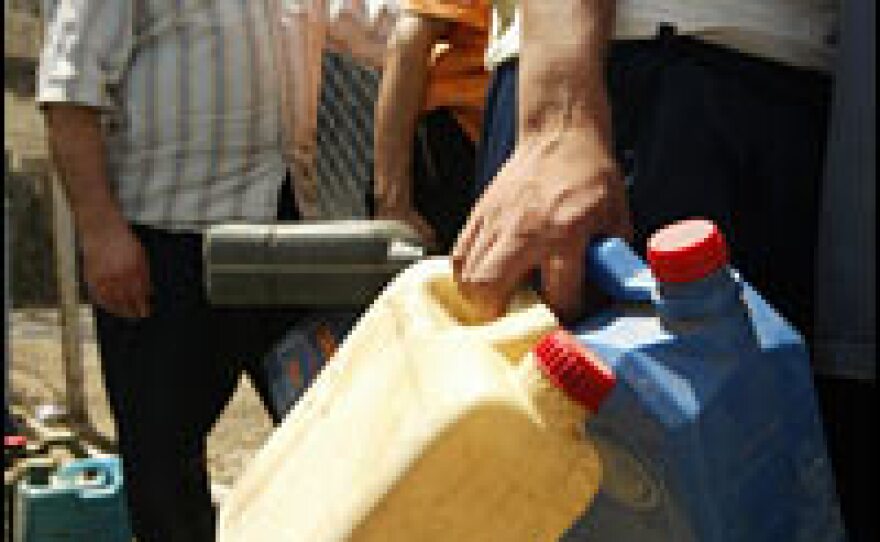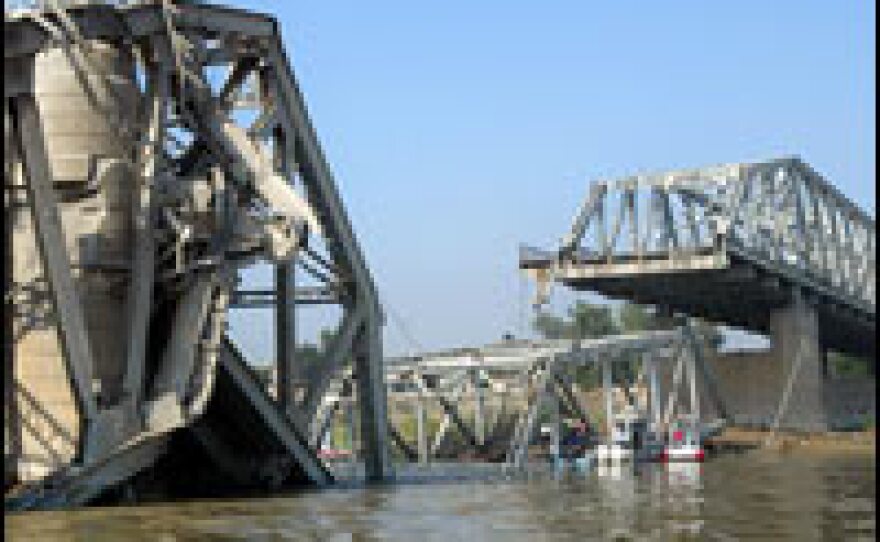

If you think you have a bad commute, imagine driving in Baghdad. Four years after the U.S. invasion, there are double the number of cars and no traffic lights. Traffic police try to control the insane intersections. But no one pays attention.
Traffic cop Muhammed Abbas is unarmed and too frightened to take on Baghdad road rage. Nearly 130 of his colleagues have been killed in Baghdad since the invasion and another 300 have been injured.
Armed convoys ram through the crowded streets, forcing cars onto the sidewalks. At the sight of an oncoming convoy, Abbas says, he just backs off.
"The Americans have priority," he says. "We can't stop them or delay them because we would get into big trouble. If they are delayed, they shoot randomly. One of my colleagues was wounded because the Americans shot him."
He just wants the Americans to pass as quickly as possible.
"We're afraid terrorists will hit them, hurting everyone else in the area," Abbas says.
That is exactly what happened recently — armed men attacked a U.S. convoy in the center of Baghdad. In the resulting crossfire, two civilian vehicles caught fire. Shaken eyewitnesses say as many as four people were killed and 11 were badly wounded.
Cpl. Mohammed Selman says his worst nightmare is when two competing convoys converge at his intersection.
"In this case, I don't know what to do," he says. "If I let the Americans pass, I get into trouble with the other convoy. If I let the other convoy go through first, the Americans turn on me."
Baghdad is divided by the Tigris River. Last month, insurgents blew up a key bridge. Bombs tore through two more bridges linking Baghdad with the province to the northeast. That leaves one bridge that most drivers consider the safest.
There are three police checkpoints, but a driver named Hakim says they do nothing to improve security. It takes him an hour just to get across the river.
He says being stuck isn't just annoying. It's scary.
"We sit and look at the other drivers wondering if they will blow themselves up," the driver says. "Here, on the bridge, there's no escape. I can't swim."
It turns out he was lucky. Not long after he got across, the bridge was closed down for hours.
And then there's the interminable wait to get gasoline. Cars and tempers overheat in the long lines.
Mustafa Saleh, a student, sweats it out — waiting for friends to bring him some water.
"When the fuel truck arrived with supplies this morning, the workers distributed gas to people they know, ignoring those of us in line," Saleh says.
It's more than simple corruption. Who can buy gasoline is determined by which armed men stand near the pumps. Sometimes the Iraqi army manages the station, letting friends in the militias slide in. Sometimes the militias themselves take over the pumps.
Abbas, the traffic policeman, doesn't tangle with the militias.
"We cannot touch them," he says.
He says the militias are stronger than the government.
Saleh says he sets out every day with a prayer. He begs for an end to chaos on the streets.
Copyright 2022 NPR. To see more, visit https://www.npr.org. 9(MDAzMjM2NDYzMDEyMzc1Njk5NjAxNzY3OQ001))






